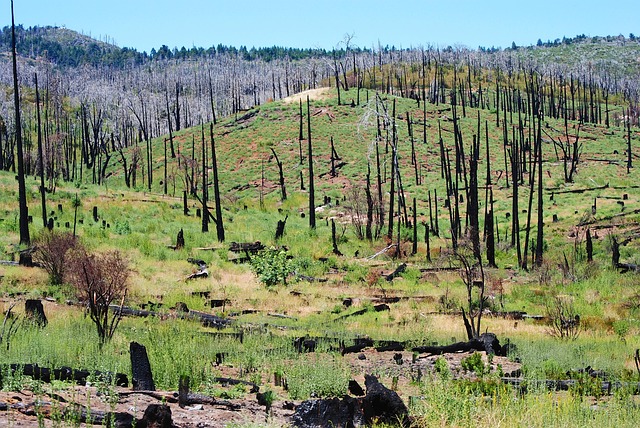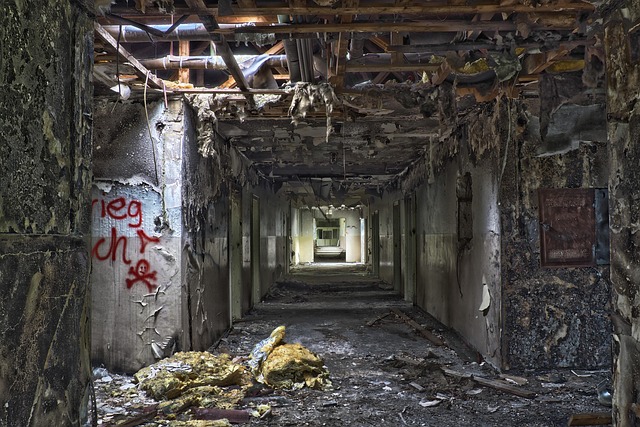Before selling a California home with fire damage, conduct a professional assessment to understand repair costs and adhere to local building codes (SEO keyword: how do i sell my home due to fire damage California). Review insurance coverage, document losses, and consider market conditions to make an informed decision. Prioritize safety, presentation, and transparent communication for a smoother transaction in the California real estate market.
After a house fire, navigating the repair process can be overwhelming. This comprehensive guide breaks down everything you need to know about repairing a burned home in California. We delve into crucial aspects like understanding fire damage assessment, estimating repair costs, and insurance coverage options. Additionally, we provide a detailed look at selling your home post-fire, offering valuable insights for folks seeking to move forward in light of this challenging experience.
- Understanding Fire Damage Assessment in California
- Estimating Repair Costs: What to Expect
- Insurance Coverage for Fire-Damaged Homes
- Selling Your Home Post-Fire: A Comprehensive Guide
Understanding Fire Damage Assessment in California

When a house in California suffers from fire damage, assessing the extent of the harm is a crucial step before any repairs can begin. The process involves a thorough inspection by professionals who are trained to identify not just visible destruction but also potential hidden damage that could affect structural integrity and safety. This assessment is critical for homeowners looking to sell their property due to fire damage, as it provides an accurate picture of repair needs and associated costs.
In California, fire damage assessments often include a detailed report outlining the affected areas, the extent of damage, and recommended repairs. This information can help homeowners negotiate with insurance providers and understand the financial implications of repairs. Additionally, knowing the degree of damage is essential for ensuring that any renovation or repair work complies with local building codes and safety standards. For those considering selling their home due to fire damage, a comprehensive assessment is a smart first step to navigate the process effectively and determine the best course of action.
Estimating Repair Costs: What to Expect

After a house fire, understanding the repair costs is crucial for homeowners in California considering their options. The first step is assessing the extent of the damage, which can vary greatly depending on the size and intensity of the fire. In California, with its diverse climate and building codes, average repair bills can range from $10,000 to $50,000 or more for moderate to severe cases.
Many factors influence these costs, including the need for structural repairs, replacement of belongings, and updates to meet modern safety standards. For instance, if your home suffered significant smoke and water damage, you might require professional cleaning services and new appliances due to the contamination. Moreover, depending on local regulations, you may need to upgrade electrical systems or plumbing to bring your house up to code, adding to the overall repair expenses.
Insurance Coverage for Fire-Damaged Homes

When a house is severely damaged by a fire, many homeowners in California wonder, “How do I sell my home due to fire damage?” The first step is understanding your insurance coverage. Most standard home insurance policies include coverage for fire damage, but the extent of this coverage varies widely depending on the policy and the specifics of the loss. Policyholders should carefully review their declarations page, which outlines the types and amounts of coverage provided.
For significant fire damage, it’s crucial to document the losses thoroughly. This includes taking photos of the damaged property, keeping records of repair estimates, and maintaining communication with your insurance company. In California, where real estate markets are competitive, timely communication about potential repairs can help maintain home value during the selling process. Understanding both your insurance benefits and the current market conditions related to fire-damaged properties is key to making informed decisions when considering how to sell a house due to fire damage.
Selling Your Home Post-Fire: A Comprehensive Guide

After a house fire, many homeowners consider selling their property as part of the recovery process. If you’re wondering, “How do I sell my home due to fire damage California?” it’s important to understand that with the right approach, you can successfully navigate this challenging situation. The first step is assessing the extent of the fire damage. Engage professional contractors to inspect and provide an accurate estimate for repairs. This will help determine if selling is the best option or if renovation is feasible.
Once you’ve understood the scope of repairs needed, consider your financial situation and insurance coverage. Insurance claims can often cover reconstruction costs, but it’s crucial to verify with your insurer what’s covered and what might be out of pocket. If renovation isn’t financially viable, preparing your home for sale becomes a priority. Start by addressing safety concerns and making the property presentable to potential buyers. Keep in mind that honest communication about the fire history and repairs is essential throughout the selling process. In California, real estate agents and buyers are aware of such situations, so transparency will facilitate a smoother transaction.
After navigating the complexities of fire damage assessment, understanding repair costs, and exploring insurance coverage options, selling your home post-fire in California is a feasible next step. By following the comprehensive guide provided, you’ll be equipped to make informed decisions regarding the sale. Remember that, while fire can leave its mark, many homes can be restored, and with the right approach, you can transform this challenging experience into a positive chapter in your life. For those considering selling due to fire damage in California, understanding these processes is key to a successful transition.






